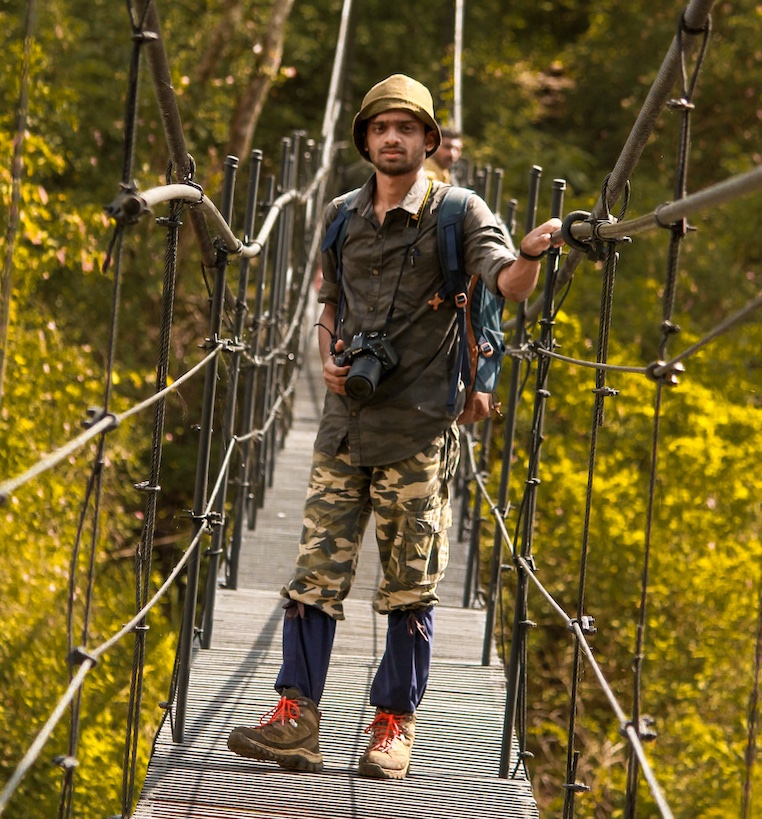What is MammalWeb? MammalWeb is a "citizen science" platform intended to collate, validate and curate camera trap data that can inform us about the distribution and ecology of mammals.
Why monitor mammals? Mammals are often elusive. Often coming out at night, and not in great numbers, it is hard to monitor their populations, where they are distributed, and how they behave. Knowing these things is important for a wide range of applications, including conservation and the sustainable development of our natural landscape.
What is the aim of MammalWeb? MammalWeb aims to be the leader in:
- enabling and expanding citizen science camera trapping to address the information deficit on the status and ecology of UK and European wild mammals
- engaging a community of citizen scientists, ranging from school children to enthusiasts, researchers, and the general public, to deploy cameras, and help classify the images
- facilitating the use of data gathered for scientific, policy and management purposes
- enhancing the connection of people to nature and its benefits for health and wellbeing
Read more about MammalWeb and the ten principles of citizen science.
Read more about MammalWeb's findings.
What are camera traps? Camera traps are devices that do not actually catch the animals, but detect and photograph any animal that moves in front of them. They are relatively easy to set up, and cause less stress to animals than traditional monitoring methods, like capturing and tagging. Camera trapping can help us to learn what animals occur in an area, when they are active, and how they time important seasonal events, such as reproduction. With careful development and analysis, camera traps can also tell us about the abundance of species in different areas and at different times. Battery-powered camera traps can be left in the wild taking pictures for months, so do not need constant checks.
Who can get involved? Anyone can get involved with MammalWeb, in one (or more) of three ways. First, any individual can also register for an account to start identifying what's pictured in the uploaded images (find out about Spotting to participate). Second, anyone who owns or can borrow a camera trap can upload image data to the site, along with information about where the images were obtained and over what period (find out about Trapping to participate). Third, organisations that already deploy camera traps (or those that are considering doing so) can contact us about setting up a 'project'; this will allow them to submit image data to the platform and to involve others in the job of classifying those data (find out about Projects to participate). Click the links in this paragraph for more information on any of these possibilities.
Read about MammalWeb's Terms and Conditions.
Who runs MammalWeb? MammalWeb was set up in collaboration between Durham University and Durham Wildlife Trust. Until 2025, it was run by MammalWeb Limited, a not-for-profit company limited by guarantee. At the end of 2024, we transitioned to a charity (charity number 1211183). Trustees include representatives from Durham University's departments of Anthropology, Bioscience and Computer Science, Durham Wildlife Trust, the University of Brighton, the National Wildlife Management Centre and independent consultants. Much of the hard work involved in setting up and running the platform, and in understanding the data is conducted by other scientists at Durham University, including the following:


Afthab Katakath
Keiron Young
Afthab’s PhD aims to engage Garden BirdWatch volunteers from the British Trust for Ornithology, encouraging them to deploy camera traps to observe the wildlife in their gardens, thereby building understanding of the ecology of urban mammals and birds, and underscoring the significance of citizen science in preserving our urban wildlife.
Keiron is conducting a PhD to establish whether the model used for the NHMP (which focuses on hedgehogs) can also be applied synergistically to groups with other species-specific interests. Keiron's particular focus is on badgers, and he is working with the Badger Trust to assess the roll-out and value of the approach.
Alumni and other acknowledgements
PhD students
Pen-Yuan Hsing completed his PhD in 2019. Pen's PhD was focused on the early design of MammalWeb and the recruitment and training of participants. Pen also showed how the data could be analysed to yield insights into spatial and temporal aspects of species' ecology.
Sammy Mason completed her PhD in 2023. Sammy's PhD was focused on two major components. First, she conducted a rigorous, standardised survey of County Durham, to provide a comparison with the data submitted by participants. Second, she assessed ways to get schools and school children involved in monitoring, which led to her appointment as the Project Officer for the British Ecological Society's "Connecting Schools to Nature" project.
Emily Baker completed her PhD in 2024. Emily's PhD focused on improving the efficiency with which citizen science data can be verified, and on the impacts of confidence in the data on the downstream use of citizen science data.
Jonathan Rees completed his PhD and a postdoc in 2024. Jonathan's PhD PhD focused on the use of image analysis and deep learning to help us extract more information more quickly from submitted photographs, thereby ensuring that the data can be put to use more quickly.
Sian Green completed her PhD in 2024. Sian's PhD focused on improving engagement, to get as many people as possible taking part in, and enjoying MammalWeb. Sian also examined camera trapping methods, and their impacts on both engagement and ecological inferences.
MBiol students
A number of MBiol (degree with integrated masters) students have conducted research projects on MammalWeb, helping to inform the design and interpretation of the project. They include: Courtney Neal (2016), Bryony Jones (2018), Toby Atkinson-Coyle (2018) and Balint Ternyik (2020).
Undergraduates, interns and other contributors
We are also grateful to the wide variety of additional students, interns and others who have helped with the project from 2014 to the present. They include: Magnus Bower, Emma Brown, Libby Chapman, Caitlin Cross, Florian Graber, David Jarrett, Rowan Knox, Hahyun Lee, Alice Miller, Emily Perrin, Emily Townley, Eloise Tugwell, Tom Wright and Lucy Zhang. We are enormously grateful to Jiří Podhorecky for the enormous contribution of translating the website into Czech!
Website design
Since its early creation by Steven Bradley, almost all of the work to add features and troubleshoot the platform has been conducted by Helen Chappell of Rhombus Technology. We are enormously grateful to Helen for her tireless work on the site and for her huge achievements!
Former Board Member
We are grateful to Simon Hodgkinson of the Smart Earth Network, one of the founding directors of MammalWeb CLG. Simon's faith in what we were trying to achieve, and his insistence on a more corporate structure to take that forward, were important drivers in creating the structure that now underpins MammalWeb.

 English (United Kingdom)
English (United Kingdom)  Czech (Čeština)
Czech (Čeština)  Nederlands (nl-NL)
Nederlands (nl-NL)  Magyar
Magyar  Deutsch (Deutschland)
Deutsch (Deutschland)  Croatian (Hrvatski)
Croatian (Hrvatski)  Polski (PL)
Polski (PL)  Español (España)
Español (España)